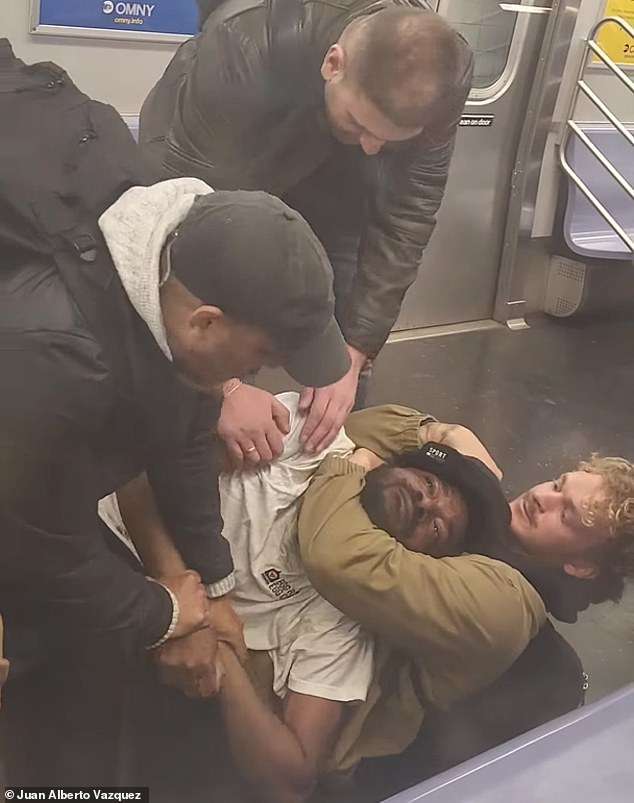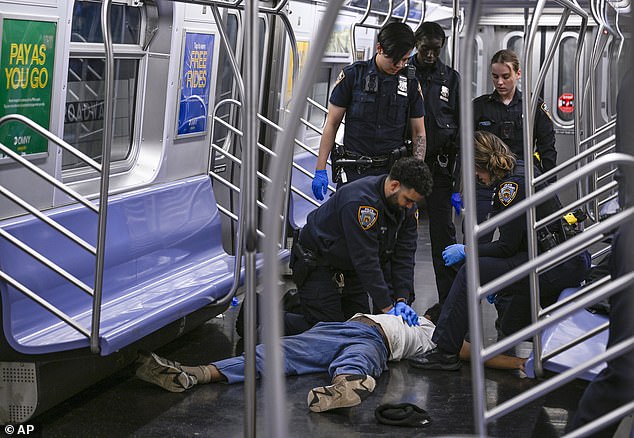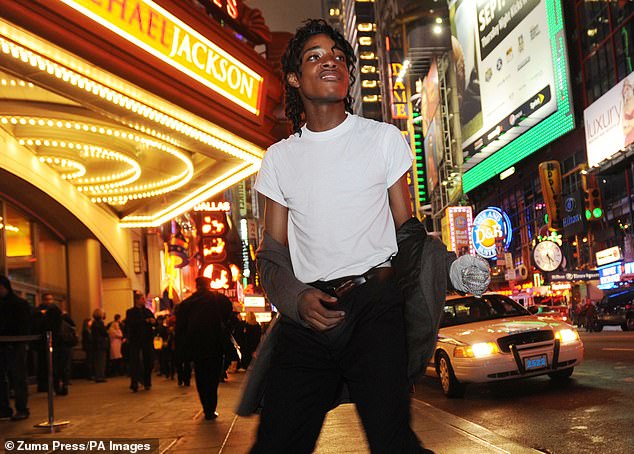Daniel Penny’s lawyer reveals why he declined to testify in Jordan Neely manslaughter case
Daniel Penny chose not to testify and defense attorneys rested their case at his trial Friday in the death of an agitated man he suffocated in a subway train.
Closing arguments are expected after Thanksgiving in the closely watched manslaughter trial over the death of Jordan Neely, 30.
The encounter between Penny, a white Marine veteran, and Neely, a homeless black man with mental health and drug problems, is implicated in political divisions in the US over race, public safety and the ability of cities to deal with mental illness and social ills. to go.
Penny, 26, has pleaded not guilty. Many defendants do not take the stand, and juries are routinely instructed that they cannot keep defendants’ silence — a constitutional right — against them.
One of Penny’s attorneys, Daniel Kenniff, noted after court that jurors did hear from Penny, in the form of his recorded statements to police minutes and hours after he put Neely in a chokehold.
“Virtually everything he said at that time is consistent with the credible testimony of his fellow passengers,” Kenniff said.
Penny told police he put his arm around Neely’s neck, put him on the ground and “kicked him out” because he was angrily throwing things and making threatening comments.
Penny said on police video that he didn’t want to hurt Neely, but wanted to avoid hurting anyone else.
Navy veteran Daniel Penny, accused of killing a menacing homeless man when he placed him in a six-minute chokehold on a train, chose not to testify in the case against him

Penny put Neely in a chokehold on the subway floor while others assisted on May 1, 2023
Several other passengers testified that they were afraid of Neely and were relieved when Penny grabbed him.
However, a man who later intervened and held Neely’s arms told jurors that he urged Penny to let go, but the veteran continued to strangle Neely for a while.
Prosecutors say Penny wanted to protect people but recklessly used too much force, overlooked Neely’s humanity and made no effort to spare his life.
City medical examiners ruled that Neely died from the chokehold. A pathologist hired by Penny’s defense disputed that finding.
Prosecutors, defense attorneys and the judge will meet Monday to work out jury instructions.
Neely sometimes entertained subway riders as a Michael Jackson impersonator. But he also had a history of psychiatric and drug problems and a criminal record, including assaulting a woman in a subway station.
When they crossed paths on a subway train on May 1, 2023, Neely begged for money, shouted that she was willing to die or go to jail, and made sudden movements, according to witnesses.
Penny’s lawyers have said Neely charged at a woman with a small child and said, “I will kill.”

Supporters have rallied behind Penny and backed a fundraising campaign in his name

NYPD officers attempt to revive Jordan Neely as he lies on the floor of an F train on May 1

Neely was a Michael Jackson impersonator who was well known and recognized in Times Square (pictured in 2009)
Penny put his arm around Neely’s neck, took him to the ground and held Neely there for nearly six minutes, with Penny’s legs around him, according to bystander videos.
Neely had stopped moving for about the last minute.
Penny’s lawyers have said he persisted, urging onlookers to call police because Neely had tried to break free at points.
Prosecutors believe he used too much force for too long.
The trial, which began on November 1, is expected to last six weeks and will call on medical experts, first responders and other passengers who were on the train that day.
